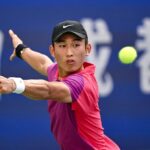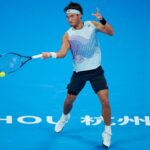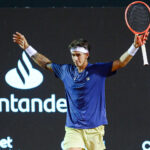Djokovic: “The future is bright for Chinese tennis”
China has been experiencing an unprecedented wave of success on the ATP Tour this year
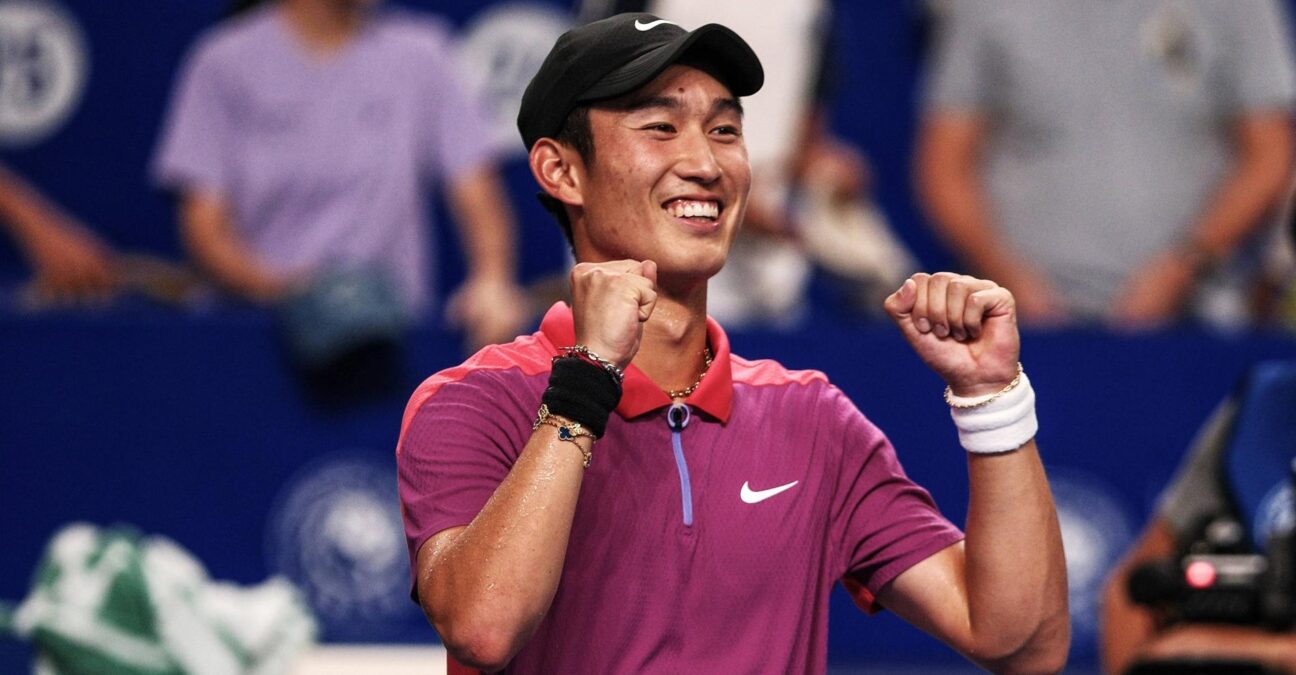 Imago/Panoramic
Imago/Panoramic
As the Asian swing of the ATP Tour reaches its climax at the Shanghai Masters over the next 10 days, Novak Djokovic has declared “the future is bright for Chinese tennis”.
But it doesn’t take the best player in the history of the game saying this to make it true; Chinese players have been forging their own path over the past two years in the men’s game.
Three Chinese players sit inside the world’s top 100 for the first time in history, with Zhang Zhizhen (41), Shang Juncheng (51) and Bu Yunchaokete (69) all hitting career-highs this season.
Zhang even reached as high as No 31 in the world earlier this year off the back of a run to the Hamburg quarter-finals. The 27-year-old made the round of 16 in Shanghai this time last year, and has wins over the likes of Casper Ruud, Taylor Fritz, Daniil Medvedev and Ben Shelton.
Bu has been making a splash just recently, downing Lorenzo Musetti and Andrey Rublev en route to the China Open semi-finals. But it’s teenager Shang who offers the most promise, with the 19-year-old already winning a title this Asian swing in Chengdu, to go with his semi-finals run in Atlanta and Hong Kong this season.
Djokovic explains China’s rise on the ATP Tour
“I think [Zhang] broke the ice, I mean, he’s the most successful male Chinese player,” said Djokovic ahead of his first match in Shanghai. “I actually practiced with Zhang last night at the center court.
“He’s climbing the rankings, and he’s helping also other players to believe that they can get to the high rankings.
“I mean, woman’s tennis in China has always had great success in history, particularly with Na Li, who is ex-No. 1 and multiple Grand Slam winner, great champion that has, you know, affected in a great way positively the growth of tennis in China. Now you have Qinwen that is obviously an Olympic champion, and she’s now established top 10, top 5 in the world.
“It seems like the future is bright for Chinese tennis in both men and women, both women and men’s sides. I like to see that. You know, I was actually hoping that there’s going to be men that are going to break to top 100, top 50 in the world, and now you have not one but several of those guys that are really playing some good quality tennis.
“I don’t think that the dedication or putting in the effort was ever a problem. I think the Chinese mentality is such that, you know, they are, when they are dedicated to something, they’re really dedicated to something, you can see that, you know, so working hard is not an issue here.
“But it was just a kind of a wait for someone, on the men’s side particularly, to really break through, so that others mentally can really believe that they have the quality, they have the capacity to go far.”
That moment came when Wu Yibing became the first Chinese man to win a title on the ATP Tour in 2023, claiming the Dallas Open. While Wu’s struggles with injury over the past 18 months have seen him drop out of the world’s top 100, his three compatriots have stepped into his shoes.
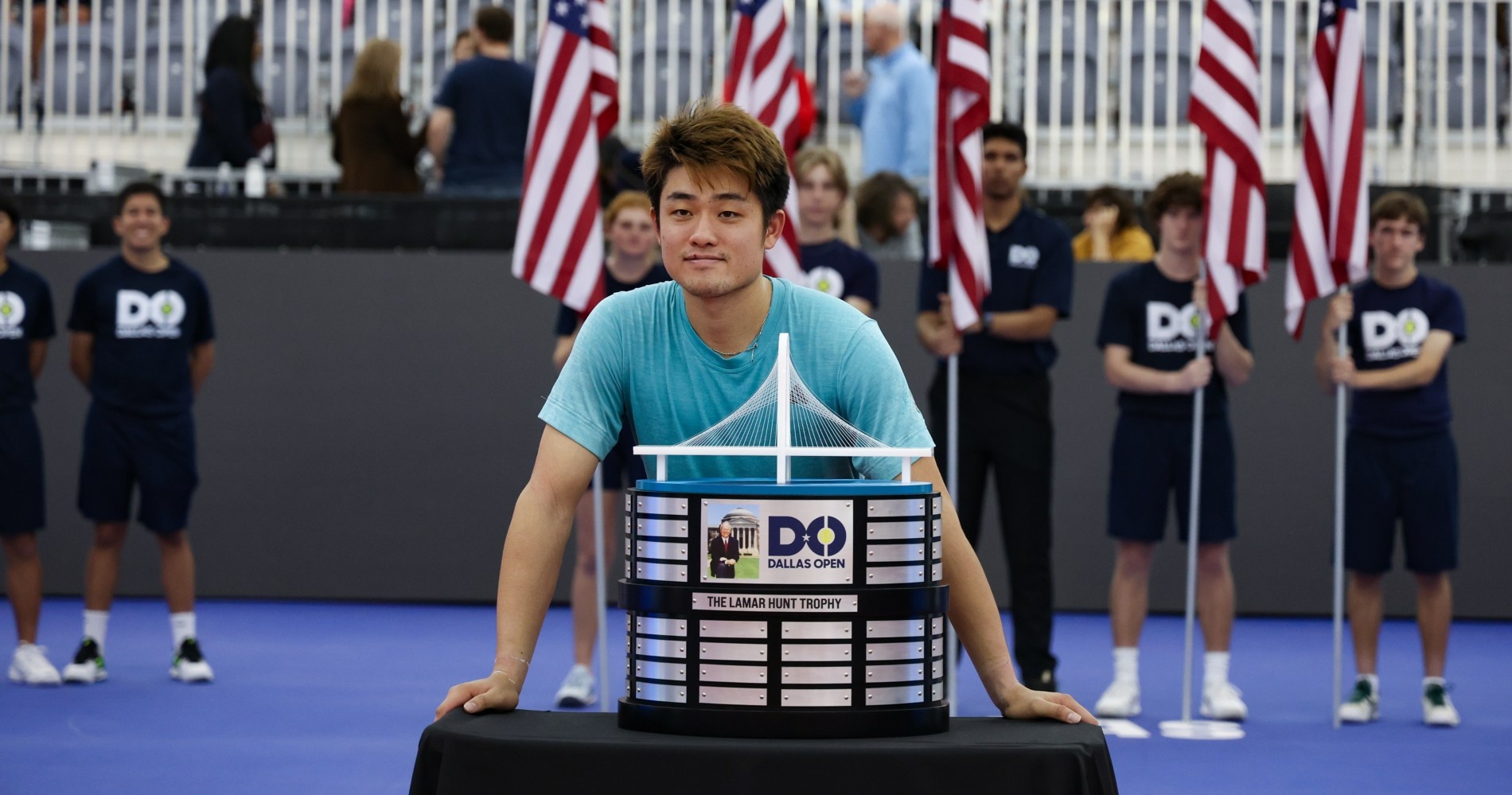
“That’s what’s happening now. It will be very interesting to see, on the men’s side, how the tennis players will evolve,” Djokovic continued. “I think it can only go up because of the good mentality and I guess the overall great investment in tennis.
“I mean, some of the best facilities, tennis facilities in the world, some of the best tennis stadiums in the world are here. You know, Shanghai, Beijing, Shenzhen, Guangzhou, all these cities have incredible facilities. I don’t think, other than slams, we have these kinds of facilities anywhere.
“I’m really happy to see, excited to see how the Chinese tennis will grow in the future.”
Chinese cohort ready to go in Shanghai
With five Chinese players starting the main draw at the Shanghai Masters, there’s plenty of optimism around a deep run for the home favourites this week.
“I feel I have the confidence just as I arrive here,” declared Bu in his pre-tournament press conference.
“Maybe it’s because I’m playing at home, and more people support me, and I am more confident or whatever, but, yeah, the results are coming, so I just trust myself and I just keep going.”
Bu explained that the success of his compatriots is “a hundred percent” inspiration for him.
“I mean, we push each other always, and we believe in each other always, so that makes us getting better. That’s also getting more Chinese people getting better in tennis on the Tour, so that’s a really good thing.”
Shang echoed Bu’s comments, saying:
“I think it’s amazing to have a lot of players, Bu making semis, he’s playing I think tonight against Jannik, and me and Zhang, we’re both doing so well. I think it’s a push for all of us. We’re competing against each other in some ways, and also trying to encourage each other to play better tennis, so I think that’s a big improvement for all of us.”
Shang has already won his first round matches in Shanghai, and is confident he can go deeper in the tournament.
“I still remember last year before walking on court against Watanuki, great player, I was super nervous, almost not knowing what to do, like just trying to stay alive on the court,” Shang explained after defeating Wong Coleman 6-4, 6-4.
“This year I think mentally I’m a different person. Tennis, maybe I haven’t changed too much, but walking on the court I knew exactly what to do. I was being so positive, trying to play my game, so I think that’s a big change for me.
Wu, on the other hand, made history by becoming the lowest ranked player to win a match at the Shanghai Masters, beating India’s Sumit Nagal 6-3, 6-3. Afterwards, he emphasised how much the current group of Chinese players owe to the previous generation.
“We are making some breakthroughs and many people are supporting us and paying attention to performance, but I think we should not just focus on what we are doing now. I think this is related to our predecessors, some of them changed to become coaches, so they are summarizing their lessons and experiences, and passing them down to our generation.
“We’re benefiting from the previous generation of Chinese players so that we can grow in matches, in challenger events, and we know more clearly what’s our strategy to play good tennis. With this tradition, I think it’s destined that we are going to do better.
“We get the chance to play with a lot of cheers and support from fans, and also some wild cards when we are playing on the home soil, but then when we go to another country, it’s a different situation.”
Should Shang and Wu win their next matches, they will meet in the third round – a clash that would be a true celebration of Chinese tennis in Shanghai.
